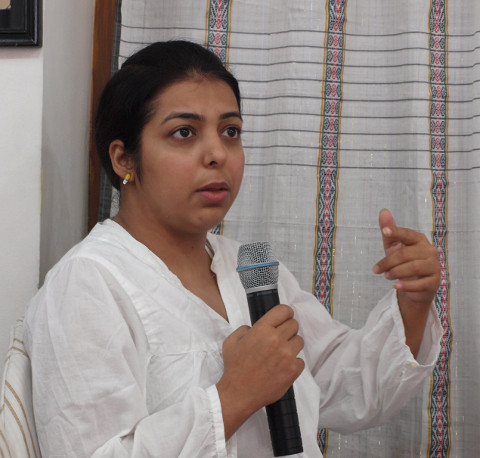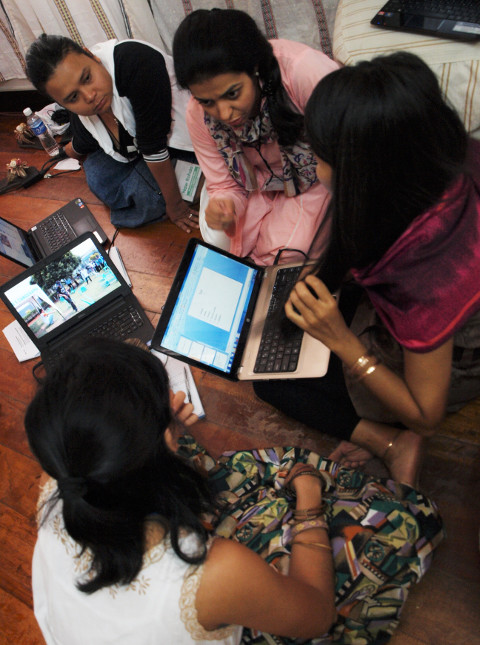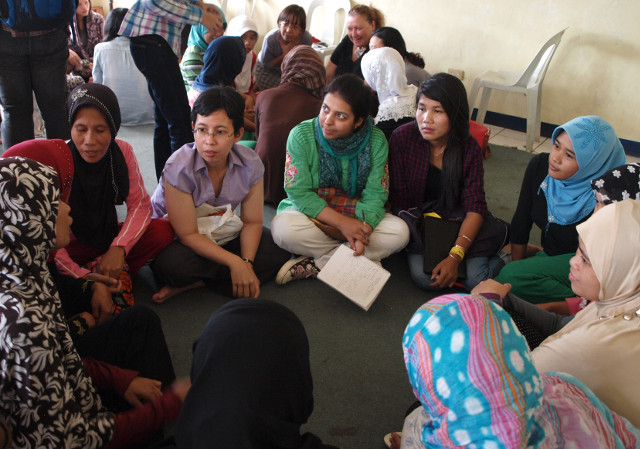
When the situation in Amna's province, Khyber Pakhtunkhwa, worsened as a result of the global "War on Terror", she moved to Islamabad for work and became involved in peacebuilding and conflict resolution. Now 30, she has returned to become the Coordinator of the Provincial Commission on the Status of Women, focusing her work on women in conflict and crisis.
"To me, empowering women is tantamount to taking a holistic approach to address global issues like peace, and that's what drives my passion for gender and peace issues".
In the past few years, Amna has noticed changes in Pakistan, "Women, peace and security is emerging as an important stream in the development sector. Moreover, more people are talking about traditional approaches of conflict resolution and peacebuilding, while still being open to innovative techniques. The focus on developing a National Action Plan on United Nations Security Council Resolution 1325, however, is still deficient".
United Nations Security Council Resolution 1325 requires parties in a conflict to respect women's rights and to support their participation in peace negotiations and in post-conflict reconstuction.
Next month will mark 14 years since the resolution was adopted, however, only six countries in the Asia Pacific (Australia, Kyrgyztan, Nepal, the Philippines, Iraq and Korea) have developed National Action Plans for implementation.The challenges are to improve the understanding of gender issues, and the acceptance of women as entitled to equal rights. Amna notes that although the need to protect and rehabilitate women in conflict scenarios is becoming recognized, "culturally it is still a challenge to think of women as negotiators and active participants in peace deals."
Even so, in Amna's experience "women have become more active as peace agents, resolving conflicts in the family and community levels, assuming roles that were previously considered as men's domain only."
Women are taking an active role in educating other women about their rights and coming forth as human rights defenders. Amna and her fellow peace and development activists founded their own initiative, the Gender Integrated Peacebuilding Foundation (GRIP), which works through capacity building with youth to encourage women's leadership at the community level. GRIP has also been working towards forming a coalition to advocate for the development of a National Action Plan on UNSCR 1325 for Pakistan.
Last year, Amna participated in a research project that explored how to enhance social media strategies to advance UNSCR 1325 in countries across Asia. As part of this project JERA International, Isis International and Asia Pacific Women's Watch, conducted a workshop in Manila, Philippines that drew together peace activist from Australia, Burma, Cambodia, Indonesia, Nepal, the Philippines, Pakistan and Sri Lanka.
Amna says that the experience made her realise that "we need to start looking at our own neighbours in Asia for best practices and models". The workshop enabled the activists to understand each other better and discover commonalities in their work and Amna believes more such opportunities are needed. Hearing the stories from women working for peace in their countries was a great source of inspiration for Amna and motivated her to continue her work.

For the women, peace and security agenda to advance in Pakistan, Amna believes there needs to be greater collaboration between civil society, UN agencies and other donors and international non government organisations, and the government. "In order to have meaningful interventions, we need to have governments on board. More research interventions are required into this field to provide a policy and advocacy base."






 The
The 
 Isis Resource Center holds one of the largest feminist collections of materials in the Global South. With 40 years of publication experience, Isis holds a vast collection.
Isis Resource Center holds one of the largest feminist collections of materials in the Global South. With 40 years of publication experience, Isis holds a vast collection.